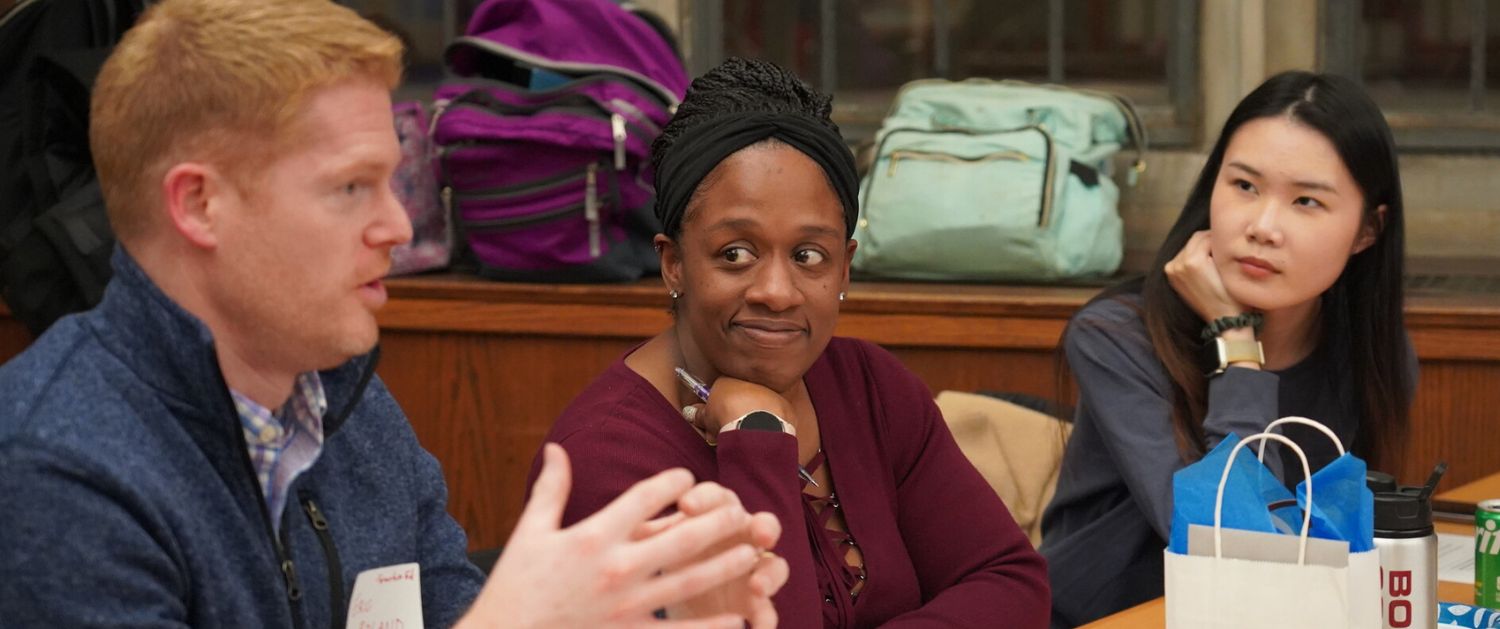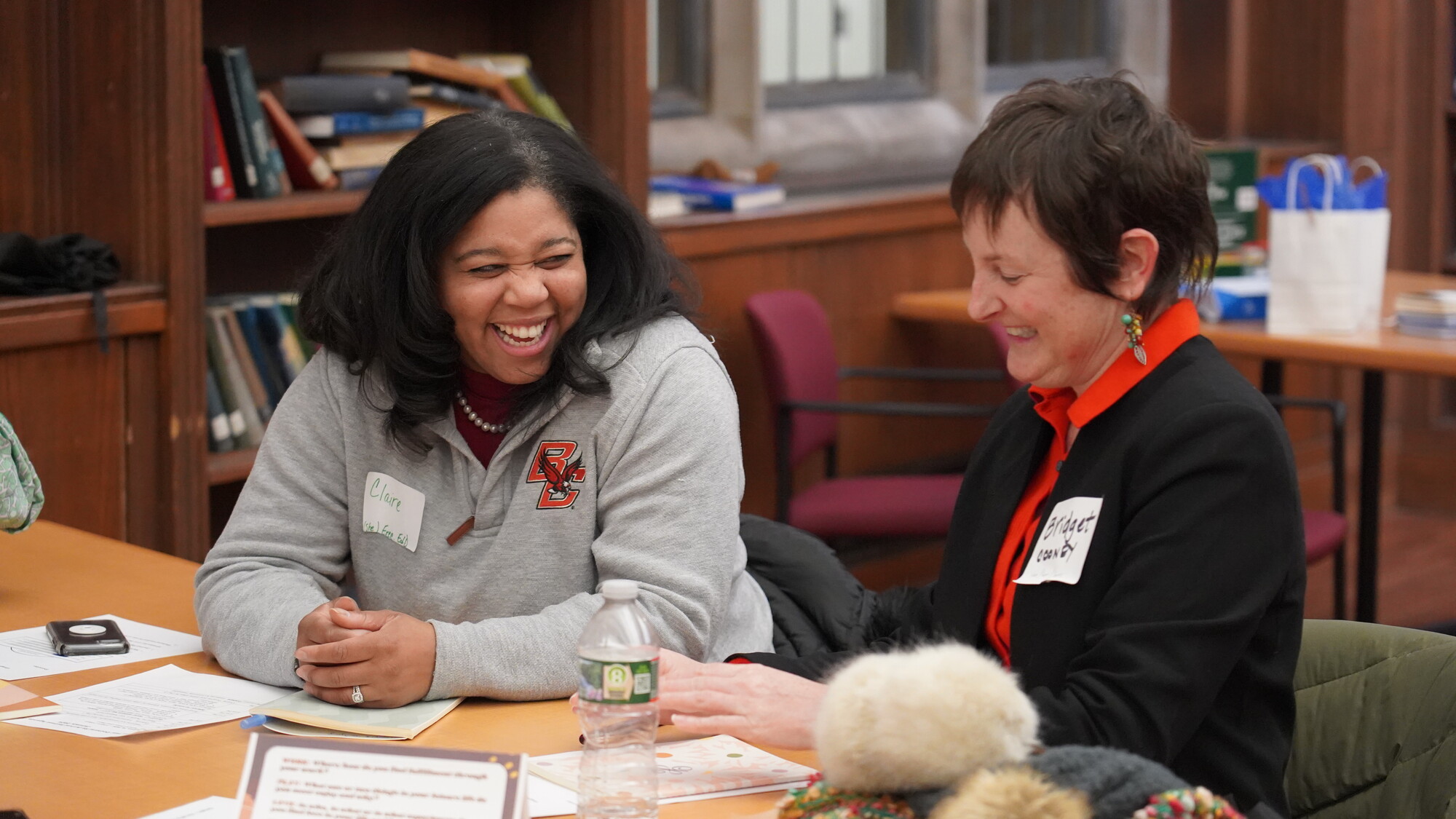Grievance Policy
Students who believe they have been evaluated or treated unfairly may file a grievance with any academic, supervisory, or administrative decision/outcome related to their graduate program.
Grievance Process
To begin the grievance process, the student should discuss the matter with the faculty member, supervisor or committee involved as soon as possible after the evaluation has been received or the grievance arises. This discussion should provide an opportunity for further dialogue and clarification between faculty and student about how the matter was determined, what criteria were used, and any related issues. If such a discussion results in a mutually acceptable resolution, the matter will be considered closed. If either party wishes to have a written statement of the outcome, the parties will put the resolution in writing, sign it, and each retain a copy. This written statement must be completed no later than two weeks after the mutually acceptable resolution has been reached.
If, however, a mutually acceptable disposition cannot be achieved, the student may present the matter in writing to the Chairperson of the department in which the faculty member, supervisor, or committee is located administratively. The student's written statement to the Chair must be submitted no later than two weeks from the date of the final meeting with the faculty member, supervisor, committee or program staff and clearly specify the nature of the complaint and the remedy requested.
The Chairperson will review the matter by meeting individually with each individual involved and reviewing any written materials related to the grievance. The Chairperson will meet again with the individuals involved, either separately or jointly or both, in an attempt to resolve the matter. The Chairperson will provide a written response within two weeks of this meeting. If a settlement is reached, it is to be put in writing and signed by the Chairperson and each of the parties, with each to retain a copy. If no resolution is reached, the Chairperson will prepare a written summary of events relevant to the grievance and provide a copy of it to the student and the faculty member or other individuals involved.
In the event that the grievance concerns treatment or evaluation in the practicum, the student should follow this same procedure, discussing the matter first with his or her field supervisor. If this discussion does not lead to resolution, the matter should be brought to the appropriate Director of Field Placements who will follow the guidelines described above for Department Chairs. If a field site grievance involves an organization other than Boston College, the student should pursue the grievance through that organization's applicable procedures. In such a case, the student is advised to inform his or her Lynch School supervisor of the grievance.
Appeal Process
If an undergraduate or graduate student is dissatisfied by the outcome of the discussions and process at the Chairperson level, the student may initiate a formal appeal. The student must initiate the appeal as early as possible, but not later than thirty (30) days after receiving the Chair’s resolution. A formal appeal consists of a written explanation of the grievance sent to the relevant Associate Dean of Graduate or Lynch Office of Undergraduate Programs, which should include the reasons the student believes the faculty member's, supervisor's, or committee’s evaluation was arbitrary, unethical, or based on extrinsic error, and the reasons why previous discussions were not satisfactory. The Associate Dean may request that the faculty member, the Chair and any other individual involved provide the Associate Dean with a written evaluation of the merit of the appeal and a summary of the attempts to resolve the grievance.
The Associate Dean will then convene an ad hoc committee composed of three members. Two members will be members of the Academics Standards Committee and will be appointed by the co-chairs of that committee. A third member will be appointed by the Associate Dean. If a student is appealing a decision of the Academic Standards Committee, no member of the Academic Standards Committee would be included in the ad hoc committee. The ad hoc committee will conduct an independent review of the grievance, which will include discussing the grievance with the Chair, the student, and other individuals involved. Within thirty (30) days of receiving the formal appeal, the ad hoc committee will provide a statement of the committee’s resolution of the matter to the student, the Department Chair involved in the earlier level of the process, the person(s) against whom the grievance was brought, and the Associate Dean.
If the student is dissatisfied with the conclusions of the ad hoc committee, the student may submit a written appeal to the Dean. The appeal must be submitted as soon as possible but no later than thirty (30) days after the student has received the conclusions of the ad hoc committee. A formal appeal to the Dean consists of a written explanation of the appeal which should include the reasons the student believes the faculty member's, supervisor's, or committee’s evaluation was arbitrary, unethical, or based on extrinsic error, and the reasons why previous discussions were not satisfactory. Copies of decisions made by the Department Chair and the ad hoc committee will be forwarded to the Dean for the Dean’s consideration in this review of the student’s appeal. Within thirty (30) days of receipt of the student’s appeal, the Dean will render a decision. The decision of the Dean is final, and will be communicated to the student in writing, with copies to the person(s) against whom the grievance was brought, and the relevant Department Chair and Associate Dean.
If a student’s grievance relates to the student’s legal rights under any law or regulation, the grievance will be addressed in accordance with the applicable legal requirements. In such cases, the faculty member or administrator responding to the grievance should consult with the Associate Dean of Faculty and Academic Affairs who will facilitate communication with the Office of the General Counsel.
In some cases, a student’s grievance may be more appropriately addressed by another University grievance procedure. Students should pursue the matter through that procedure. For example, students who wish to grieve treatment or evaluation related to their second major outside the Lynch School should follow the policies of the relevant department. If the student believes that he or she has experienced discriminatory harassment, the student should follow the discriminatory harassment policies described in the University Policy against Discriminatory Harassment in the Boston College Policies and Procedure Manual.




